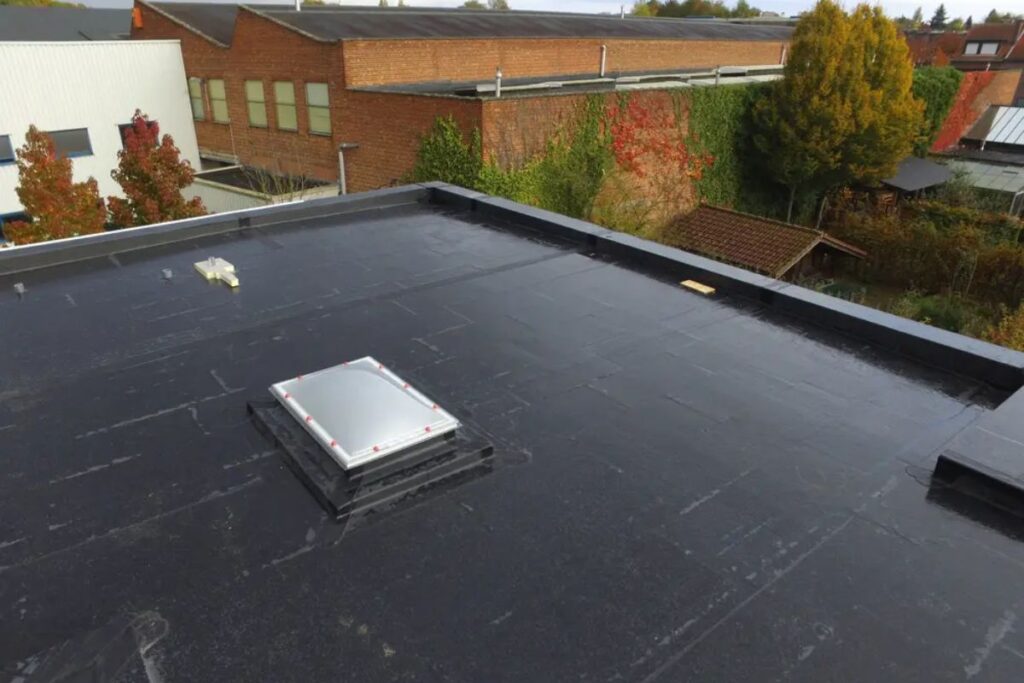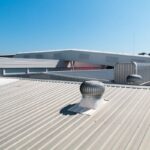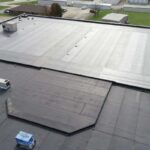Hello Friends, If you are planning to build or renovate a commercial building, choosing the right flat roofing system is one of the most important decisions you’ll make. The roof serves as the barrier against weather, helps maintain indoor temperatures, and can even impact your energy costs. While there are many flat roof systems available, it is important to understand their pros, cons, and costs before making your decision.
In this article, we will explore the best flat roof systems for commercial buildings. We’ll cover everything you need to know—from longevity and durability to cost and maintenance—so you can choose the best option for your property.
What to Look for in a Flat Roof System for Commercial Buildings
| Feature | Importance |
|---|---|
| Longevity | Roof lifespan should match or exceed building lifespan |
| Durability | Must withstand local climate and weather conditions |
| Cost-Efficiency | Budget-friendly without sacrificing quality |
| Maintenance | Requires minimal, easy-to-manage upkeep |
1. EPDM (Ethylene Propylene Diene Monomer)
Why Choose EPDM:
EPDM, often referred to as rubber roofing, is one of the most widely used flat roofing systems for commercial buildings.
Pros:
- Cost-effective (around $3-$5 per square foot)
- Easy to install and repair
- Recyclable materials
- 20-30 year lifespan
Cons:
- Black color absorbs heat
- Can be punctured by sharp objects
Best For: Commercial buildings in mild climates and property owners on a budget.
2. TPO (Thermoplastic Polyolefin)
Why Choose TPO:
TPO is a single-ply membrane roofing option that is heat-welded for watertight sealing. It is often white, which helps in reflecting sunlight and lowering cooling costs.
Pros:
- UV resistant
- Energy-efficient
- Cost-effective ($4-$7 per sq ft)
- 20-30 year lifespan
Cons:
- Inconsistent manufacturing standards
- Heat-welded seams require professional installation
Best For: Businesses seeking energy efficiency in hot climates.
3. PVC (Polyvinyl Chloride)
Why Choose PVC:
PVC roofing is known for its strength and longevity. It resists chemicals, fire, and even animal waste, making it suitable for a variety of commercial buildings.
Pros:
- Highly durable
- Excellent UV and chemical resistance
- Fire-retardant
- 30+ year lifespan
Cons:
- Expensive ($8-$10 per sq ft)
- Not compatible with asphalt materials
Best For: Restaurants, high-rise buildings, and industrial facilities.
4. Spray Polyurethane Foam (SPF)
Why Choose SPF:
SPF is a liquid material sprayed onto the roof, which then expands into foam and forms a solid layer. It provides excellent insulation and waterproofing.
Pros:
- Seamless insulation
- Eco-friendly
- 20-30 year lifespan
Cons:
- Requires special equipment for installation
- Higher labor costs
Best For: Flat roofs with unusual shapes or for those needing high insulation.
5. Asphalt Decks
Why Choose Asphalt:
Asphalt is a strong, waterproof material derived from petroleum. While it’s more common in roads, it’s also highly effective for flat roofs.
Pros:
- Very durable
- Suitable for rooftop parks and heavy foot traffic
- Lifespan of 50+ years
Cons:
- Heavy, may require extra joist support
- Expensive ($10+ per sq ft)
Best For: Buildings with rooftop features or green roofs.
6. Metal Roofs
Why Choose Metal Roofing:
Metal roofs offer a modern look and are extremely durable. They come in materials like aluminum, galvanized steel, and galvalume.
Pros:
- Long lifespan (up to 50 years)
- Fire and UV resistant
- Lightweight and easy to install
Cons:
- High cost ($15-$60 per sq ft)
- Can be noisy in rain or hail
Best For: Warehouses, factories, and modern commercial spaces.
Comparison Table: Flat Roof Systems
| Material | Lifespan | Cost (Per Sq Ft) | Key Benefit | Key Limitation |
| EPDM | 20-30 yrs | $3-$5 | Affordable and durable | Heat absorption |
| TPO | 20-30 yrs | $4-$7 | Energy-efficient | Quality inconsistency |
| PVC | 30+ yrs | $8-$10 | Chemical resistance | High cost |
| SPF | 20-30 yrs | Varies | Excellent insulation | Expensive installation |
| Asphalt Deck | 50+ yrs | $10+ | Extremely durable | Heavy and costly |
| Metal Roof | 30-50 yrs | $15-$60 | Lightweight and long life | Noisy and expensive |
Final Thoughts: Which One is the Best?
Best Overall (Longevity + Durability): Metal Roof
Best Budget Option: EPDM
Best Energy Efficiency: TPO
Best for Chemical-Heavy Areas: PVC
Best for Green Roofs/Rooftop Gardens: Asphalt Deck
Best for Unique Shapes/Insulation: SPF
Conclusion
Choosing the best flat roofing system for your commercial building depends on your specific needs, budget, and climate conditions. From affordable rubber roofs to high-end metal and asphalt decks, there’s a solution for every requirement.
Regardless of which option you choose, always hire experienced and certified roofing contractors. Proper installation plays a major role in how long your roof will last and how well it performs.
Consult a professional today and make your commercial roof investment worthwhile!



